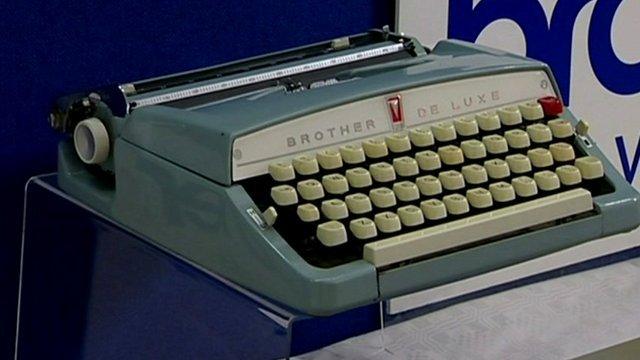Imperial Typewriters strike project recalls 'shameful' union
- Published
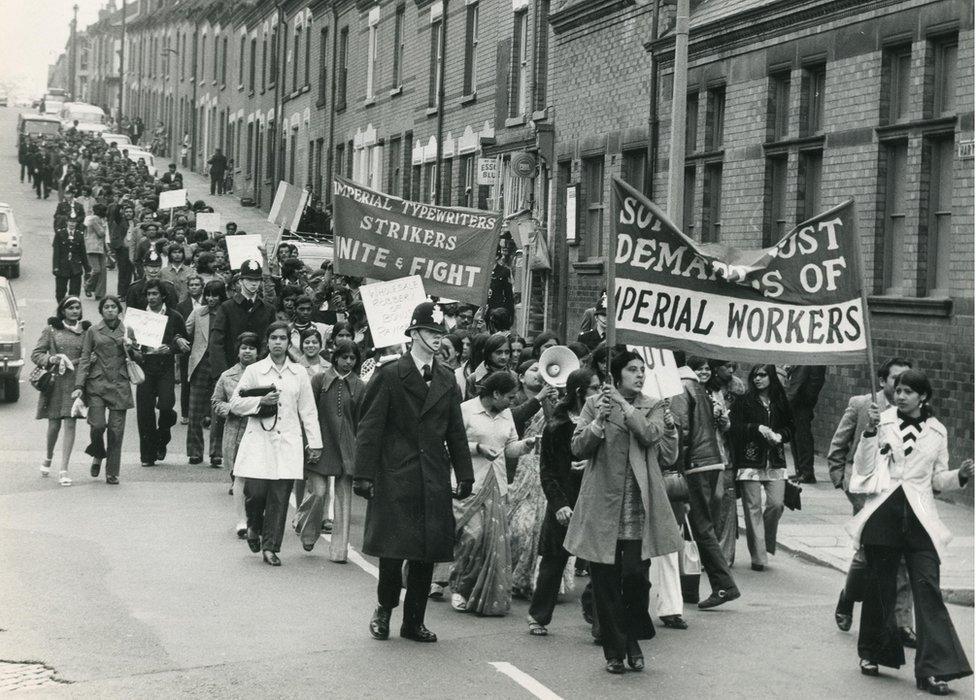
Despite not getting union backing, the strikers organised themselves effectively
A strike where unions were accused of institutional racism is being marked by a special exhibition in Leicester.
The Imperial Typewriters strike in 1974 saw hundreds of mainly Asian workers protest for nearly three months.
The dispute centred on lack of promotions for Asian workers and unpaid bonuses but was sharpened by a "shameful" lack of support from unions.
Curator Divya Ghelani said it was a "story of people's fight for rights. They really stuck it out".
"I am excited to tell the story because it is a local story and a national story of how Britain changed," she said.
"This is our history and a really historic moment."
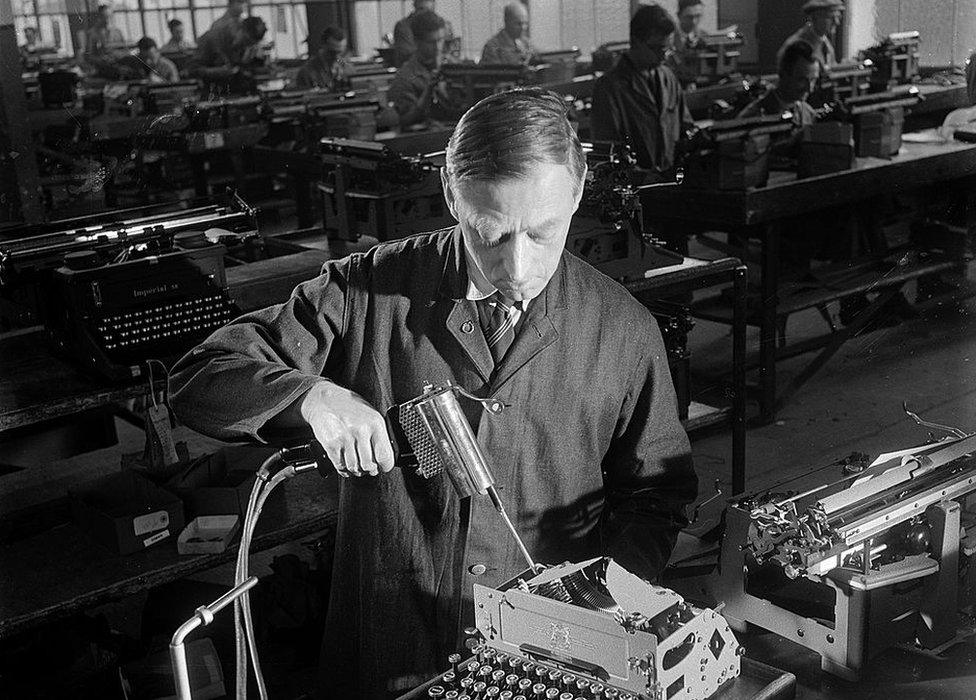
Before the 1960s, the Imperial Typewriters staff had been almost exclusively white
Imperial Typewriters, a company founded in 1908, was bought by a US firm in the 1960s which then introduced Asian workers to boost productivity.
The new employees, who made up about 1,100 of the 1,600-strong workforce, found they were not getting the same bonuses or flexible working arrangements white colleagues enjoyed.
During a May Day protest, 39 Asian workers walked out and they were soon joined by about 500 more.
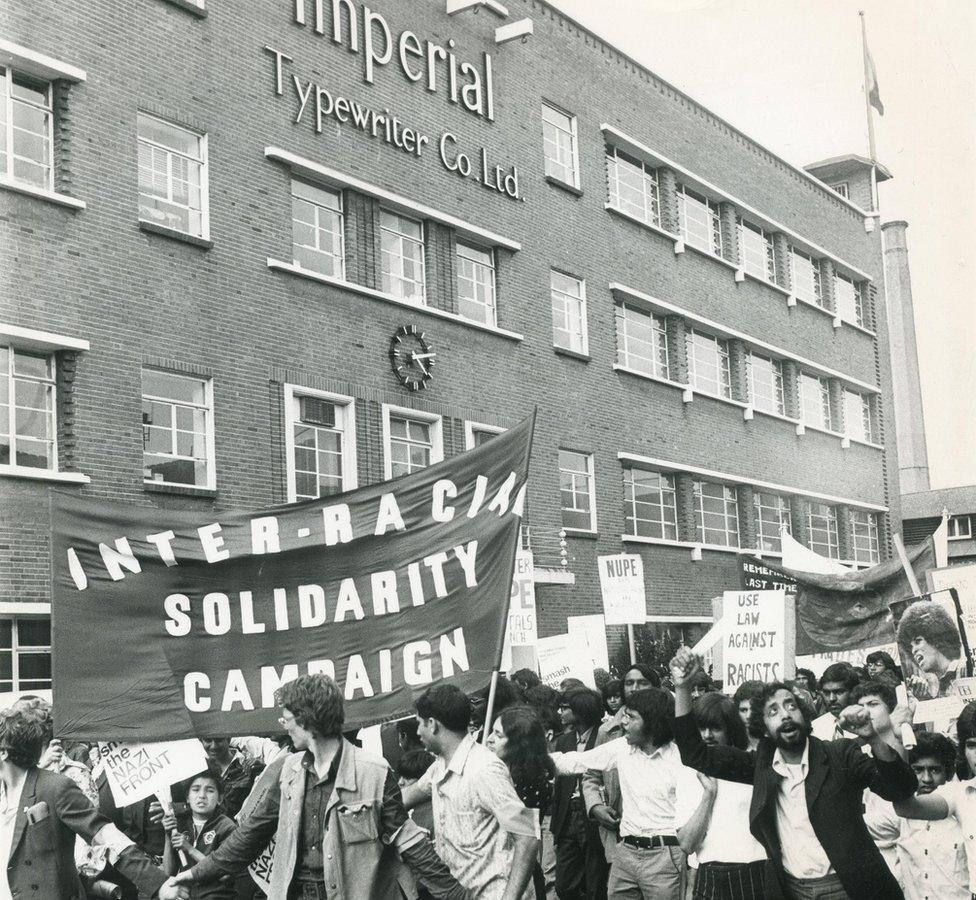
The strikers attracted support from across the country
The local Transport and General Workers' Union (TGWU) negotiator said the group had "not followed the proper disputes procedure" and "have no legitimate grievances".
The union refused to make the strike official, saying "some people must learn how things are done".
Ms Ghelani said: "These were unlikely protesters at the time but the situation forced them to stand up for themselves and each other.
"The unions were accused of being institutionally racist and didn't support the migrant workers.
"It's a very shameful moment in British trade union history."
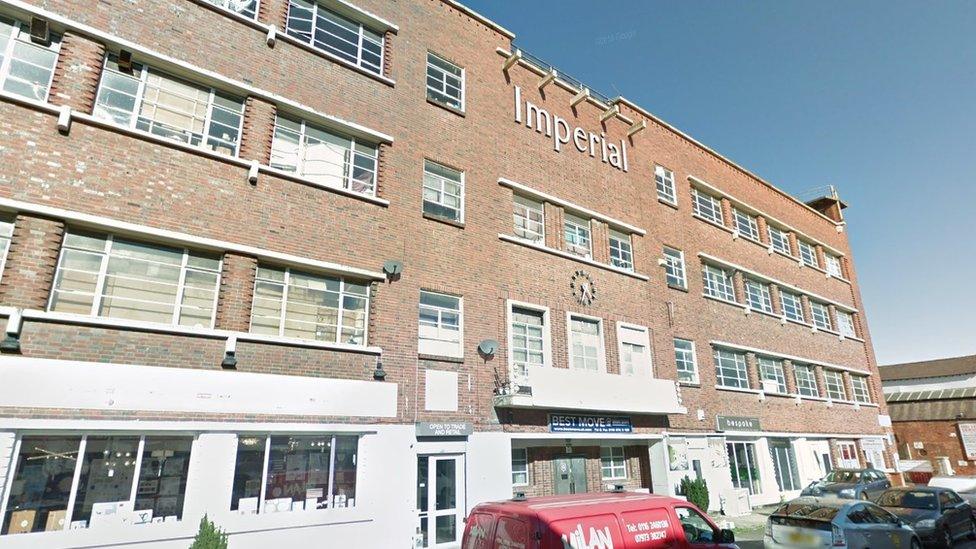
The building on East Park Road is largely unchanged
Despite the lack of official support, and antagonism from the far-right National Front, demonstrators organised picket lines, publicity campaigns and mass meetings.
Unusually, it made national headlines but because of a political element to the action, local union reps made accusations of "professional agitators".
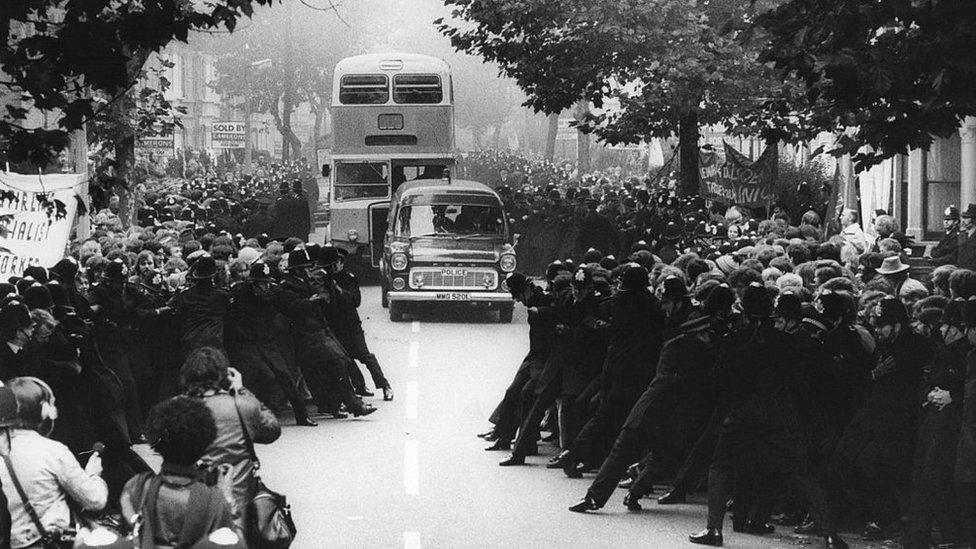
The Grunwick strike in London in 1974 saw mass clashes between police and unions
As the dispute dragged on, more workers were fired and by the end of July most of the strikers were sacked. A two-week summer shutdown effectively ended industrial action.
Shortly after, Litton announced it was shutting the factory, which finally closed its doors the next year.
However, its impact could be seen soon after when mainly Asian workers were backed by unions during the two-year Grunwick strike in London, pictured above.
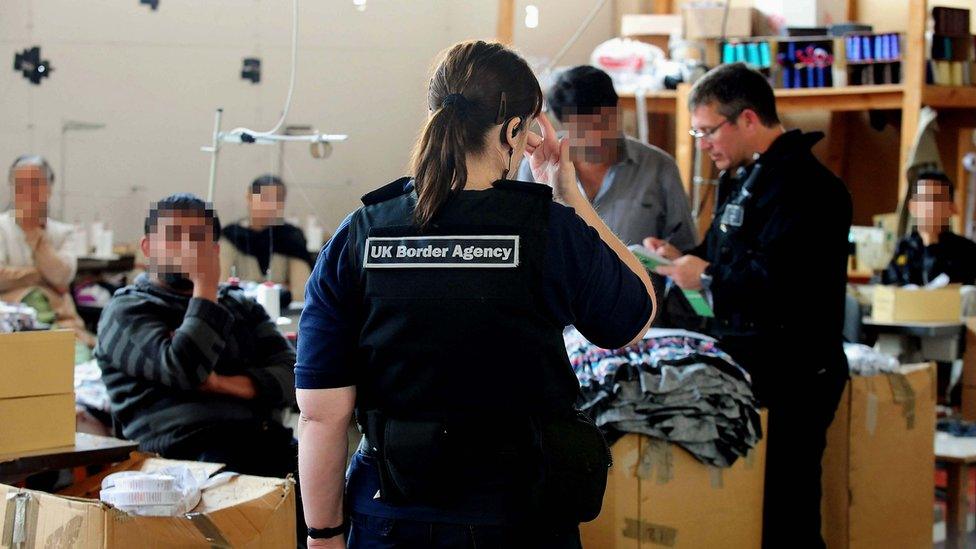
The old Imperial building hit the headlines in 2011 when it was raided by Border Agency teams
Dr Evan Smith from Flinders University, who has studied the strike, said: "Imperial Typewriters is often seen as a part of a narrative of greater awareness by the British labour movement of the issues of racial discrimination.
"The narrative ends with the Grunwick strike... which has been celebrated as a coming together of BME workers and the 'white' labour movement."
The project at Leicester's Newarke Houses Museum will use an exhibition, with images, videos and commentaries from those involved in the dispute.

Follow BBC East Midlands on Facebook, external, Twitter, external, or Instagram, external. Send your story ideas to eastmidsnews@bbc.co.uk, external.
Related topics
- Published11 January 2019

- Published11 October 2018

- Published10 November 2016
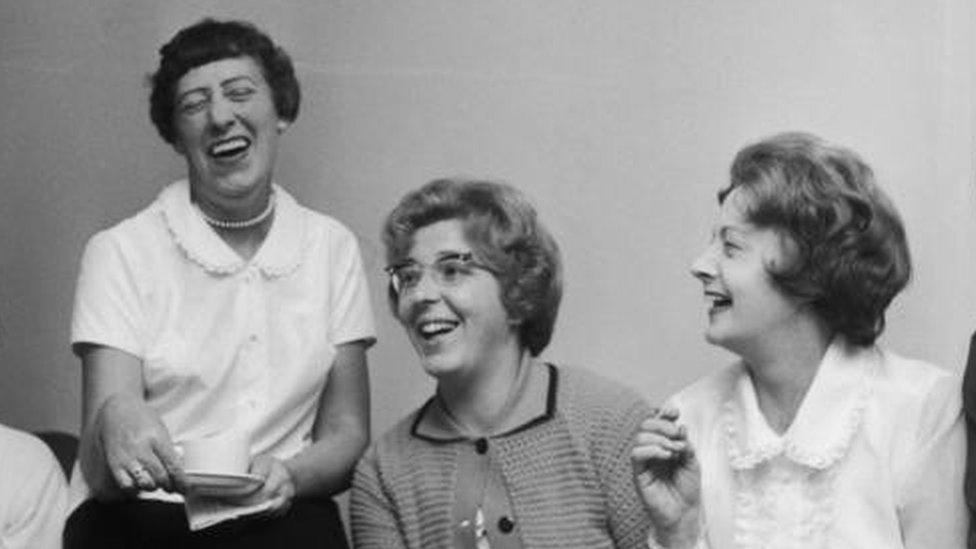
- Published10 September 2016
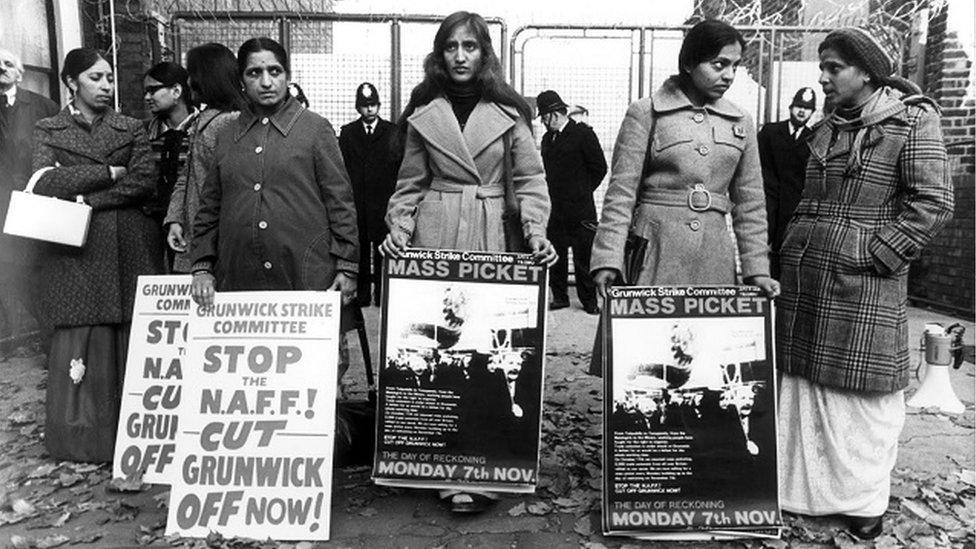
- Published20 November 2012
